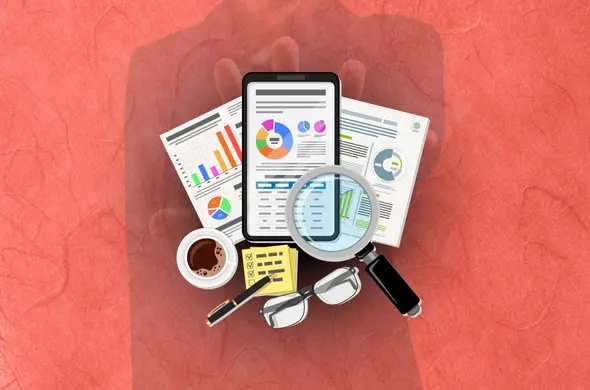Updated
February 8, 2019
Written by
Alyssa Maano
From the local to the international level, the need to communicate has always been supported by multiple ways to stay connected. Connectivity has been a main driving force for the growth of all global industries. Fast, reliable, convenient and simple; these are the considerations in finding which mode of communication is to be used.
Calls are frustrating, lengthy and recordings are time-consuming. Instant messaging uses apps, logins, requires internet or data coverage and a connected device which isn’t as convenient or cheap. Emails are slow, dated and less convenient.
This leaves text messaging as the most viable option for business owners. Compared to its other counterparts, text messaging or SMS is easy to access from any device, not app dependent, has no data requirements, and requires no logins. It is fast, reliable, convenient and simple.
It is hard to ignore the advantages of text messaging as a mode of communication especially in business, considering how flexible and adaptable it can be to different business sizes and set-ups and client demands.
Text messages are more likely to have a higher open rate than emails. Studies show that email has a 15-22% chance of getting read due to high instances where emails may mistakenly be detected as spam and can at times, fail to reach the target audience’s inboxes.
On the other hand, text messaging has a remarkable open rate of 98% –seeing as how most individuals these days spend a huge chunk of time on their smartphones.
Whenever they feel a buzz on their pockets or hear their phone’s alert tone, it signals either a text, a call or a notification and it takes them seconds to check it out. As a matter of fact, it has been found that text messages are read within 15 upon being received.
It takes an average of 90 seconds for a mobile phone user to respond to a text message and an average of 90 minutes to answer an email. Since not everyone has the convenience of time on their side, text messaging is the best option.
If a brand wishes to run a marketing campaign or reach customers even while they are on-the-go, using SMS provides the higher probability that customers can be reached in real-time. This will then increase a sense of urgency and relevance on the message that the business wants to convey.
Phones are a basic personal necessity and SMS capability is a normal feature for all phones. At the same time, there are no fancy applications or expensive data plans necessary when communicating via SMS. Send a text – get a text.
Using the most simple of GSM networks, text messaging is almost always available. On the other hand, phone calls may not always be clear due to distance and signal interruptions. Emails require a stable internet connection in order for it to be disseminated to its recipients.
Sometimes, not all customers are happy to receive updates about a business’ products and services, nor are they always willing to participate in text-based promotions. The opt-in and opt-out features of text messaging service is highly convenient for customers.
Opt-in enables customers to allow SMS notifications from businesses to be sent to them. Opt out, on the other hand, gives the choice of putting a halt to receiving any more text messages from the brand.
Thanks to the convenience brought by SMS, it brings a positive impression on businesses employing it. When a brand is easily accessible via means or resources that have been a consistent part of the lifestyles of hundreds of customers, it shows that brands are willing to tap into what features and approaches work best with end-users.
Promotions, product updates and limited offers sent via texts likewise have a personal touch, and nothing is more engaging to customers than a genuine, personalized way of communicating with them.
SMS makes a business’ customer support operations more efficient. It makes it easier for both the business owner and the customers to communicate. The latter can send their feedback and concerns in real-time, while the former can devise immediate and more feasible solutions to customer concerns.
The best part is even with a customer support service manned by a small team of agents, it is possible to handle bigger volumes of messages from customers.
The benefits of texting have a far wider range when it comes to opportunities for circulating information and engaging customers. From one-on-one communication for generating leads to bulk messaging for marketing and promoting services, SMS is the king. It can be easily assimilated into big and small marketing campaigns thanks to how cost-effective it is.
Text messaging service for business requires little investment and resource for it to start working systematically and boost a brand’s existing operations and manpower. As a matter of fact, even small businesses can deliver a more efficient support to their customers by simply using the power of SMS.
In 2016, statistics on usage growth for SMS show that over 37 million customers have opted into business text messaging services. By 2020, it is expected that the number will rise to an estimate of 48.7 million end-users.
Not only that, SMS costs a lot less per conversation than calls do, making it an effective tool for increasing lead conversions during sales by 100%. By simply taking a look at the statistics below, it is hard to ignore the continuously expanding potential and value of text messaging for businesses.
It is not surprising that businesses can continue flourishing with the aid of SMS. Employing text messaging to enhance a business’ communication resources and processes is among the most plausible ways that brands can connect with a bigger population of leads. This is especially true in the current market, where almost everything can be controlled by technology and the demand for accessible and quick assistance is often sought after by customers.
Putting all the advantages of text messaging service aside, there are also important factors that must be considered when incorporating SMS as part of a brand’s expansion and development strategy, such as:
Text messaging has proved to be more than just a tool for communication, and it seems likely that it will continue to flourish as a multi-faceted asset for businesses in the years to come. In fact, the list of advantages listed in this article can possibly stretch into 10 more additional benefits sooner or later.
To learn more about how to design an SMS Solution that fits different business requirements, contact us now.
From the local to the international level, the need to communicate has always been supported by multiple ways to stay connected. Connectivity has been a main driving force for the growth of all global industries. Fast, reliable, convenient and simple; these are the considerations in finding which mode of communication is to be used.
Calls are frustrating, lengthy and recordings are time-consuming. Instant messaging uses apps, logins, requires internet or data coverage and a connected device which isn’t as convenient or cheap. Emails are slow, dated and less convenient.
This leaves text messaging as the most viable option for business owners. Compared to its other counterparts, text messaging or SMS is easy to access from any device, not app dependent, has no data requirements, and requires no logins. It is fast, reliable, convenient and simple.
It is hard to ignore the advantages of text messaging as a mode of communication especially in business, considering how flexible and adaptable it can be to different business sizes and set-ups and client demands.
Text messages are more likely to have a higher open rate than emails. Studies show that email has a 15-22% chance of getting read due to high instances where emails may mistakenly be detected as spam and can at times, fail to reach the target audience’s inboxes.
On the other hand, text messaging has a remarkable open rate of 98% –seeing as how most individuals these days spend a huge chunk of time on their smartphones.
Whenever they feel a buzz on their pockets or hear their phone’s alert tone, it signals either a text, a call or a notification and it takes them seconds to check it out. As a matter of fact, it has been found that text messages are read within 15 upon being received.
It takes an average of 90 seconds for a mobile phone user to respond to a text message and an average of 90 minutes to answer an email. Since not everyone has the convenience of time on their side, text messaging is the best option.
If a brand wishes to run a marketing campaign or reach customers even while they are on-the-go, using SMS provides the higher probability that customers can be reached in real-time. This will then increase a sense of urgency and relevance on the message that the business wants to convey.
Phones are a basic personal necessity and SMS capability is a normal feature for all phones. At the same time, there are no fancy applications or expensive data plans necessary when communicating via SMS. Send a text – get a text.
Using the most simple of GSM networks, text messaging is almost always available. On the other hand, phone calls may not always be clear due to distance and signal interruptions. Emails require a stable internet connection in order for it to be disseminated to its recipients.
Sometimes, not all customers are happy to receive updates about a business’ products and services, nor are they always willing to participate in text-based promotions. The opt-in and opt-out features of text messaging service is highly convenient for customers.
Opt-in enables customers to allow SMS notifications from businesses to be sent to them. Opt out, on the other hand, gives the choice of putting a halt to receiving any more text messages from the brand.
Thanks to the convenience brought by SMS, it brings a positive impression on businesses employing it. When a brand is easily accessible via means or resources that have been a consistent part of the lifestyles of hundreds of customers, it shows that brands are willing to tap into what features and approaches work best with end-users.
Promotions, product updates and limited offers sent via texts likewise have a personal touch, and nothing is more engaging to customers than a genuine, personalized way of communicating with them.
SMS makes a business’ customer support operations more efficient. It makes it easier for both the business owner and the customers to communicate. The latter can send their feedback and concerns in real-time, while the former can devise immediate and more feasible solutions to customer concerns.
The best part is even with a customer support service manned by a small team of agents, it is possible to handle bigger volumes of messages from customers.
The benefits of texting have a far wider range when it comes to opportunities for circulating information and engaging customers. From one-on-one communication for generating leads to bulk messaging for marketing and promoting services, SMS is the king. It can be easily assimilated into big and small marketing campaigns thanks to how cost-effective it is.
Text messaging service for business requires little investment and resource for it to start working systematically and boost a brand’s existing operations and manpower. As a matter of fact, even small businesses can deliver a more efficient support to their customers by simply using the power of SMS.
In 2016, statistics on usage growth for SMS show that over 37 million customers have opted into business text messaging services. By 2020, it is expected that the number will rise to an estimate of 48.7 million end-users.
Not only that, SMS costs a lot less per conversation than calls do, making it an effective tool for increasing lead conversions during sales by 100%. By simply taking a look at the statistics below, it is hard to ignore the continuously expanding potential and value of text messaging for businesses.
It is not surprising that businesses can continue flourishing with the aid of SMS. Employing text messaging to enhance a business’ communication resources and processes is among the most plausible ways that brands can connect with a bigger population of leads. This is especially true in the current market, where almost everything can be controlled by technology and the demand for accessible and quick assistance is often sought after by customers.
Putting all the advantages of text messaging service aside, there are also important factors that must be considered when incorporating SMS as part of a brand’s expansion and development strategy, such as:
Text messaging has proved to be more than just a tool for communication, and it seems likely that it will continue to flourish as a multi-faceted asset for businesses in the years to come. In fact, the list of advantages listed in this article can possibly stretch into 10 more additional benefits sooner or later.
To learn more about how to design an SMS Solution that fits different business requirements, contact us now.
Help us devise custom-fit solutions specifically for your business needs and objectives! We help strengthen the grey areas on your customer support and content moderation practices.
Main Office
1710/35 Spring Street, Melbourne, VIC 3000 Australia
Other Offices
Melbourne
Texas
Manila
Zurich
Amsterdam
Dnipro
Email Us
A good company is comprised of good employees. NMS-AU encourages our workforce regardless of rank or tenure to give constructive ideas for operations improvement, workplace morale and business development.








